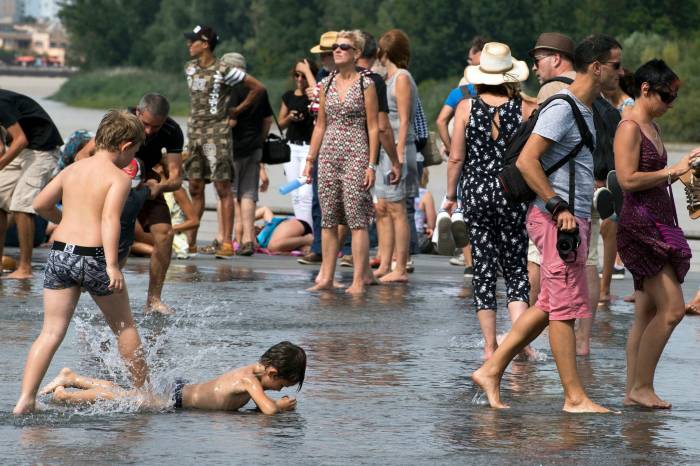The temperatures recorded in the Arctic Circle were “unprecedented”, while further south in the Netherlands, Denmark and Ireland the odds of the current heatwave more than doubled.
“The logic that climate change will do this is inescapable – the world is becoming warmer, and so heatwaves like this are becoming more common,” said Dr Friederike Otto, deputy director of the Environmental Change Institute at the University of Oxford and one of the report’s authors.
“What was once regarded as unusually warm weather will become commonplace – in some cases, it already has.”
Their finding are a preliminary study, as the full analysis will take months, but nevertheless they said the impact of climate change was “unambiguous”.
In total the team took readings from seven weather stations in northern Europe during the hottest three-day period – two in Finland, one each in Denmark, Ireland, the Netherlands, Norway and Sweden. Data were not yet available from UK stations to include in this early analysis.
The WWA team will now publish these results formally in a scientific journal, and will follow them up with a more in-depth analysis of the hot summer of 2018.
Scientists have become increasingly confident attributing individual weather events to climate change by modelling what conditions would be like without climate change, and comparing current events to historical trends.
Previously researchers found that Hurricane Harvey’s devastating rainfall was made three times more likely by climate change.
Dr Geert Jan van Oldenborgh from the Royal Netherlands Meteorological Institute said it was incredible to see the “fingerprints” of climate change so clearly in the current heatwave.
“It’s amazing to see that now it is something you can really see at a local level in extreme weather rather than this very abstract global mean temperature,” he said.
The findings come after the Environmental Audit Committee warned that the UK government has not done enough to prepare for a future in which extreme heatwaves are the norm.
As heatwaves, wildfires and record temperatures have been recorded across the northern hemisphere in recent weeks, experts have used the chaos to highlight the need to tackle climate change.
“Even if we stick to the Paris agreement targets and keep global warming to below 2C, heatwaves and hot summers like we saw in 2003 and 2006 will likely occur in most years,” said Dr Andrew King, a climate scientist at the University of Melbourne who was not involved in the new study.
“Under a less optimistic scenario where we don’t greatly reduce our greenhouse gas emissions, heat extremes will become far worse and the hot summers of today would be relatively cool in a few decades time.”
Dr Robert Vautard, one of the team members from the Laboratory of Climate and Environmental Sciences, said while heatwaves have always struck Europe, they were now striking at times and in places never seen before.
“Day after day, year after year, we see climate change unfolding,” he said.
“We are not taking the right measures at the moment – we are discovering climate change instead of doing something about it.”
The Independent
More about: Climatechange
















































